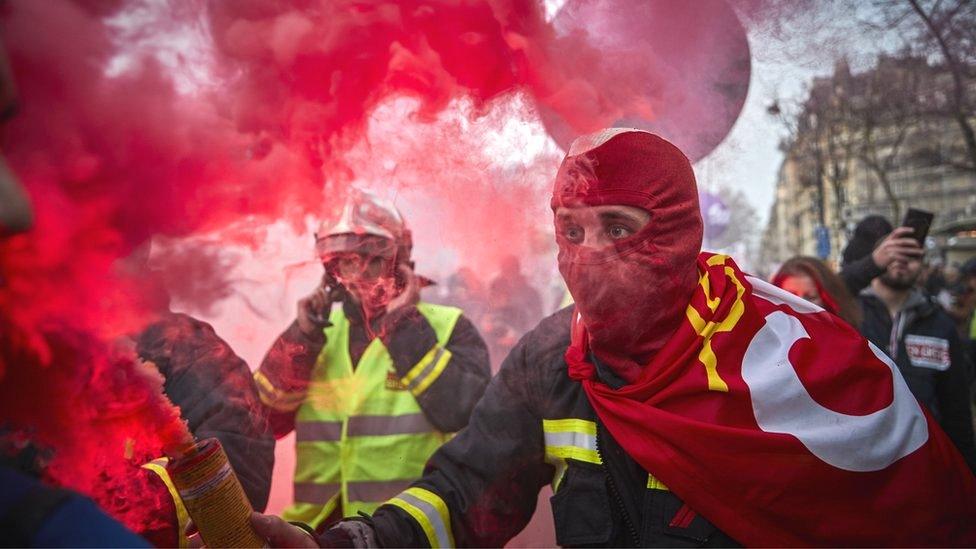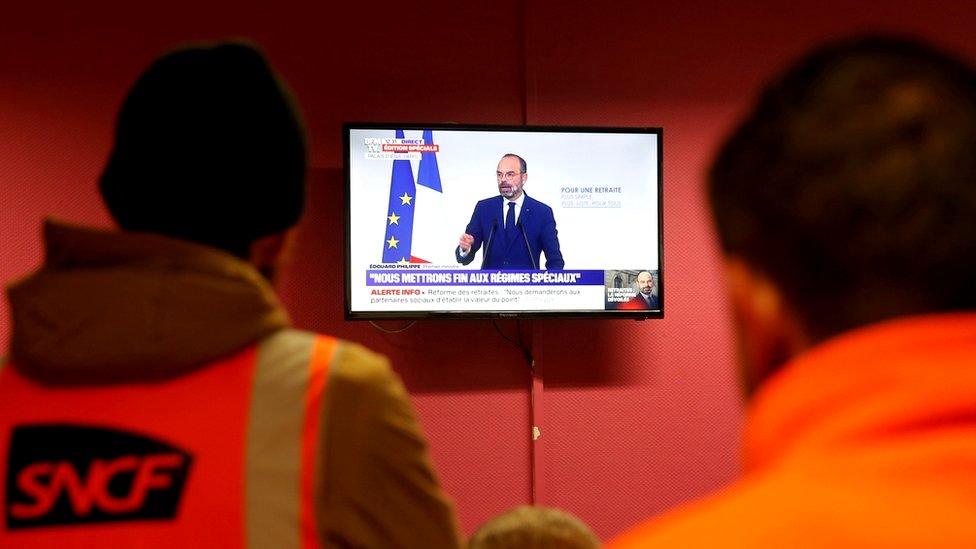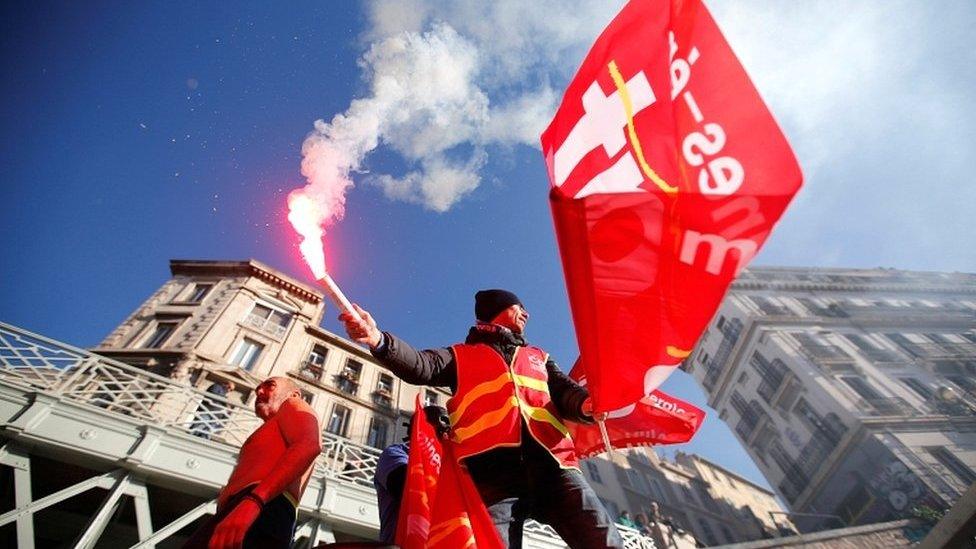France strike: PM Édouard Philippe outlines 'fairer' pension plan
- Published

Protests against the reforms have been taking place across France for seven days
French Prime Minister Édouard Philippe has said controversial pension reforms are necessary to create a fairer system that "will be the same for everyone".
The move towards a universal points-based system has sparked outrage among unions, who say it will force staff to work longer to avoid reduced payments.
Mr Philippe said changes would apply to those entering work from 2022 and would not affect those born before 1975.
It comes on the seventh day of strike action across France over the reforms.
"The time has come to build a universal pension system... we are proposing a new inter-generational pact," Mr Philippe told reporters at a news conference in Paris on Wednesday.
He vowed to push ahead with the programme regardless of widespread protests.
Police clash with pension reform protesters in Bordeaux on Tuesday
Opponents of the universal pension system - aimed at rewarding employees for each day worked with points later transferred into benefits - say it is part of an assault on French values by President Emmanuel Macron.
France's biggest strike in decades - involving hundreds of thousands of people - has received public support, despite causing disruption to public transport, emergency services, hospitals and schools.
Some demonstrations, however, have turned violent since the industrial action began last week. On Tuesday, protesters and riot-police clashed in Lille and Bordeaux, with officers using tear gas to disperse large crowds.
What did the PM say?
"There is no hidden agenda," Mr Philippe said, adding that while some people might disagree with the reforms, the plan was part of the government's "ambition of social justice".
"We are not looking for small savings here or there," he said.
"We do not want to leave anybody [behind] - on the contrary, [the plan is] to further protect the purchasing power of workers and the purchasing power of retired people both today and tomorrow."

Striking French rail staff watch as Mr Philippe outlines his pension reform plans
The reforms, the prime minister said, would guarantee a minimum monthly pension of €1,000 ($1108; £842) for those employed throughout their working life up to the age of 62, and that it would particularly benefit women.
He said that public sector workers, such as members of France's armed forces, firefighters, police officers and prison guards, would still be entitled to early retirement under the plans.
He added that the new universal scheme would, however, encourage people to work longer while putting an end to France's complex retirement system.
France currently has 42 different pension schemes across its private and public sectors, with variations in retirement age and benefits.
On Tuesday, Mr Philippe said his speech would have no "magic announcements" that might help bring the demonstrations to a halt.
So why exactly are people striking?
Unions representing millions of staff in both the public and private sectors warn that it will remove the most advantageous pensions for a number of jobs and force people to work longer or face reduced payouts when they retire.
France raised the official retirement age in the past decade from 60 to 62, but it remains one of the lowest among the OECD group of rich nations - in the UK, for example, the retirement age for state pensions is 66 and is due to rise to at least 67.
Mr Macron argues that further reform is needed because the current system is unsustainable.
In November, a report commissioned by Mr Philippe concluded that, under the existing system, the country's pension deficit could be as high as €17.2bn ($19bn; £14.5bn) by 2025.

The Macron administration is hoping to avoid a repeat of the country's general strike over pension reforms in 1995, which crippled the transport system for three weeks and drew massive popular support, forcing a government reversal.
- Published10 December 2019

- Published5 December 2019

- Published5 December 2019
